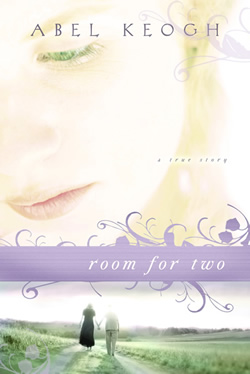
This post was originally going to be a review of Abel Keogh‘s book but instead it’s mostly just a collection of thoughts and impressions. The book is called Room for Two and explores the aftermath of his wife’s suicide.
Suicide is probably the most emotionally complicated way to lose a loved one or even an acquaintance. If someone dies in a protracted manner, you can say that the death was the easing of their suffering. If they die suddenly and unexpectedly, you can remember them as the vibrant person that they were. You can tell yourself that they’re in a better place now and that maybe you’ll see them around the corner (which, paradoxically, you hope is a very long ways away). Whatever the case, it’s a tragedy but it’s a tragedy not without its comforts.
Suicide, though, is different. It does more than take them away from you, it mars your very memory of the person. It leads to doubts and recriminations. What did you know and when did you know it? What could you have known earlier if you’d just been paying more attention? You drift in this vague selfish feeling of wondering why you weren’t enough, of anger at the turmoil they left behind, and of the natural sadness of knowing that they’re not there anymore.
As many of you know, I had a really good friend named Walt that killed himself. I also had a former acquaintance do the same long after she had alienated me and everybody else. I’m not even going to begin suggesting that what he went through and what I went through are the same thing. Indeed most of the book I couldn’t relate to with my own experience. But the emotional confusion was something that I could.
There is a great book by Haruki Murakami called Norwegian Wood that explores the suicide epidemic in Japan many years ago. I remember as I read the book how angry I was at the characters that killed themselves and how scornful I was of Naoko, the lead female character who I knew by the nature of the book would do the same. I can’t remember hating a character so much. It made me think of Caitlyn, the former friend who was not Walter who killed herself. It was, to me, her last gasp of narcissism. The last best way that she could make those of us that had long stopped caring about her care once again.
The thing about Naoko and Caitlyn is that they were easy to hate. They were easy objects of scorn. My guard was up against ever liking the former and I’d long since stopped liking the latter. No emotional investment. In fact, not only could I cavalierly declare their actions selfish and cruel, I could redirect all the residual anger I had at Walt and redirect it towards them. They were such a convenient outlet. As such, as I gradually got over Walt’s death, my anger against Naoko and Caitlyn subsided.
All of this talk about friends and former friends and fictional characters doesn’t do the slightest bit of justice to the idea of losing what Abel did, the woman to whom he had dedicated the rest of his life to. At the outset, I wondered how he would express his anger in addition to his grief. Particularly when she took the life of their unborn child with her. Everybody will tell you how you shouldn’t feel, but it’s something that simply has to be confronted and dealt with.
In writing such a book, I imagine that most writers would be tempted to gloss over this part. Who wants to present themselves as being someone angry at someone that was such a mess that they killed themselves. One of the more refreshing aspects of the book was the even-handed manner in which Abel presents himself. He neither presents himself as the tragic victim who had done nothing to deserve his wretched fate nor go too far in the other direction by trying to elicit sympathy as the guy that feels responsible for something that was obviously not his fault.
On the whole, the book is a surprisingly quick read, both because it’s relatively short but also because it moves along quickly. He doesn’t get bogged down with details or the desire to express every thought and emotion perfectly. It provided some thought-fodder and then moved on before you got tired of thinking about it.
Abel is a friend to Hit Coffee and as such it’s unlikely that if I didn’t enjoy his book that I would actually say so. On the other hand, if I hadn’t enjoyed it, I probably wouldn’t have said anything at all. So consider these 800 words an endorsement.
About the Author
please enter your email address on this page.
